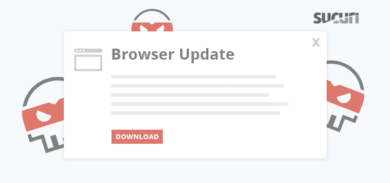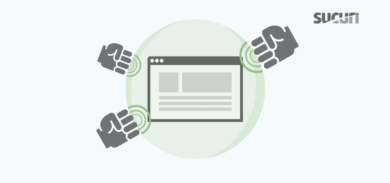During the COVID-19 pandemic, there is concern about health systems worldwide. Many people in isolation or self-quarantine are looking for accurate medical information online on a daily basis.
As a result, it is crucial that public health and social service websites remain available. We want to prevent malicious users from abusing these types of websites. So, we decided to stand up and do something about it.
Free year of the Sucuri WAF for crisis responders
For a limited time, Sucuri is going to provide crisis responders with a free website firewall for one year during the coronavirus pandemic. We are offering website protection and increased performance for dedicated professionals and volunteer services who have been acting as crisis responders, such as:
- Hospitals
- Physicians
- Emergency medical technicians
- Food banks
The application process is now closed, however you can always chat with our team or sign up for a 30-day free trial.
How does it work and who is it for?
We are accepting applications from organizations with unprotected websites that directly provide critical support for the pandemic relief effort. This includes institutions that can’t afford the service or who might not have support for security services
To our loyal customers: Our goal is to ensure that currently vulnerable websites related to the crisis response are safe. If you have are having trouble paying for services please reach out to our billing account team in your support dashboard, and see our recent email communication about COVID-19.
Don’t let bad actors exploit our situation
Though some ransomware groups are claiming they will not be targeting health organizations, there are still bad actors online that will likely treat the COVID-19 outbreak as an opportunity. They do so at their own risk; a response from national cybersecurity units and ethical hackers is inevitable.
Public message to ransomware gangs: Stay the f away from medical organizations. If you target hospital computer systems during the pandemic, we will use all of our resources to hunt you down.
— @mikko (@mikko) March 18, 2020
When people flock to a website for help, some hackers and scammers can work to compromise the site and steal valuable data. Worse still, they could even use a distributed denial of service (DDoS) attack to shut it down completely.
This is not just a problem for health care and social services. Many organizations currently lack the IT resources required to address the cybersecurity challenges of rapidly shifting the workforce and business model to an online environment.
We need a global suspension of malware activity right now. Security teams are getting pulled into assisting with Work-From-Home to keep isolation and save people’s lives. Come back 2x harder when this ends whatever. We can’t be doing this right now.
— SecurityUnderSwift (@SwiftOnSecurity) March 19, 2020
For those who are new to working from home, we’ve released a post including security tips for remote workers.
How can Sucuri protect and speed up your website?
We keep our WAF updated with the latest and emerging threat definitions to block DDoS and other attacks by bad actors.
Traffic surges to a website can reduce availability. Our WAF mitigates traffic surges with the Anycast content delivery network (CDN). The Anycast CDN stores copies of a website on numerous points of presence (PoP) throughout the world, and then delivers content to an individual via the nearest PoP.
That improves a website’s availability during episodes of high traffic and speeds up content delivery by an average of 60%.
Count on our WAF to protect your website
We built our WAF with people in mind who must adhere to the U.S. Health Insurance Portability and Accountability Act (HIPAA). With your website behind our WAF, be confident you’re meeting standards for protected health information.
If you have any questions, feel free to chat with us. Stay safe!









